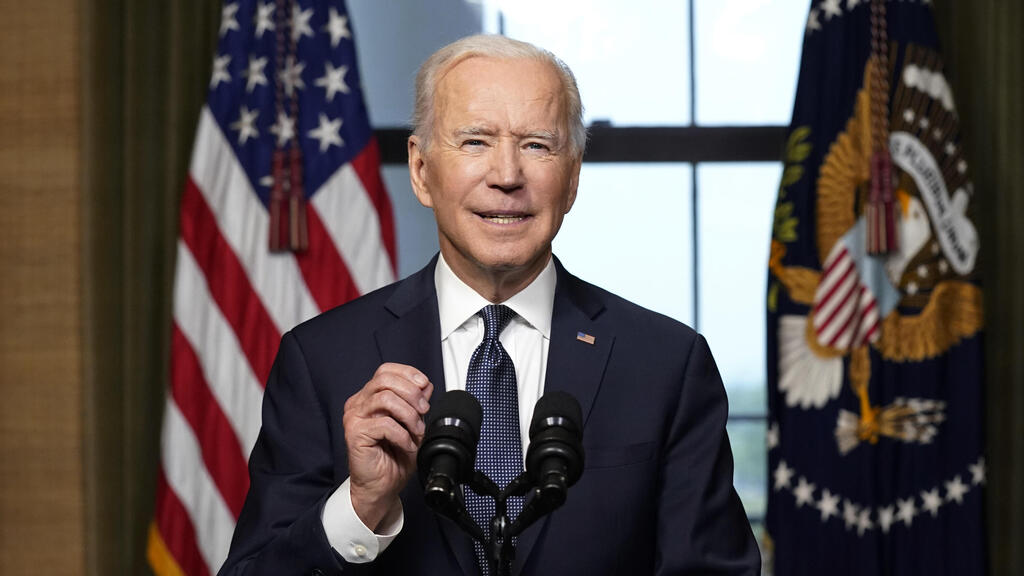The start of talks in Vienna between Iran and the world powers symbolizes a crucial step in the attempt to rein in Tehran and bring the U.S. back into the nuclear deal abandoned by Donald Trump.
If anyone had hoped that U.S. President Joe Biden intended to use sanctions to force Tehran into agreeing to a revised accord, it is clear now that he is determined to return to the original 2015 outline.
Only when that happens might he attempt to renegotiate the deal's terms and timescale.
At the time of writing, it is still unclear whether the American desire for a quick resurrection of the deal will be echoed by Iran.
Tehran sees its position on two key issues as non-negotiable: it will not rework the 2015 accord and and it demands the immediate lifting of all sanctions as a prerequisite for its resumed compliance.
5 View gallery
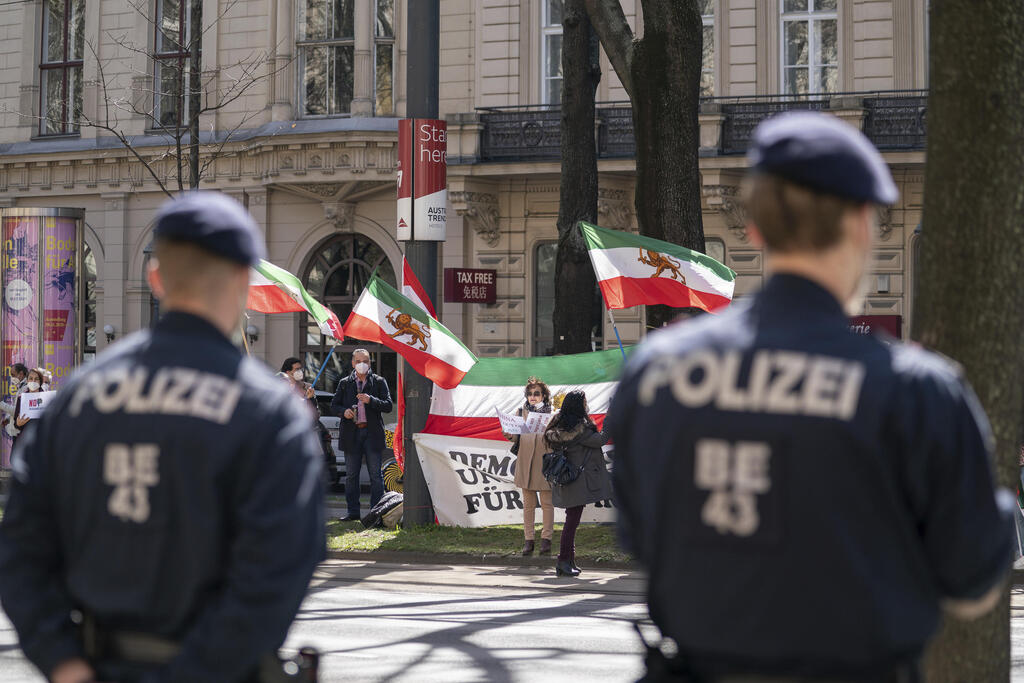

Protesters carrying the flag of an Iranian opposition group stand across from police officers in Vienna as the nuclear talks with Iran were taking place
(Photo: AP)
Even so, there is a certain amount of flexibility on its refusal to hold negotiations with the U.S. before sanctions are lifted and on the possibility of a mutual, staggered return to the agreement.
Regarding the first issue, it seems a solution reminiscent of Israel's talks with Hamas has been applied: both Iranian and American diplomats are in Vienna, but refraining from direct talks.
The second issue is more problematic given the unequivocal statements made in recent weeks by senior Iranian officials.
Nonetheless, with enough political will, this issue can be resolved creatively, such as with the adoption of a road map calling for the total lifting of sanctions and their actual removal over several months and in parallel with Iran's return to its commitments under the 2015 deal.
5 View gallery
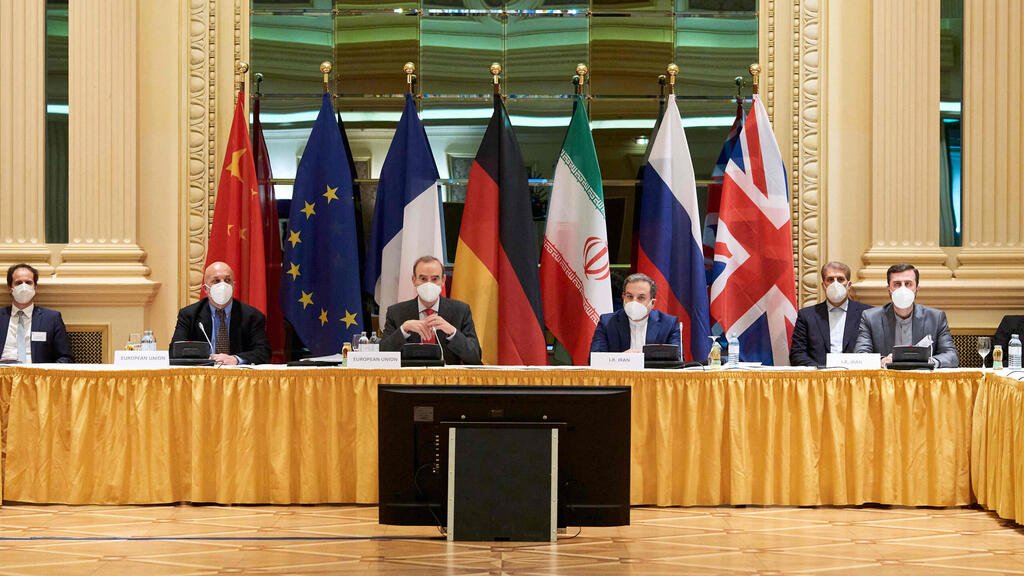

Diplomats from the world powers and Iran meeting in Vienna on the return to the 2015 nuclear deal
(Photo: AFP)
The main question is whether Iran's leadership is willing to immediately return to the agreement.
Supreme Leader Ali Khamenei believes the U.S. cannot be trusted to hold up its commitments and that the only way for Iran to deal with its ongoing economic troubles is to neutralize the sanctions, and not have them lifted at the sacrifice of its values.
Khamenei's position was bolstered by the recent economic agreement Iran signed with China, laying the foundation for bilateral cooperation for the next 25 years, which according to recent reports by the IMF could boost the Islamic Republic's economy in 2021 by 2.5%.
5 View gallery
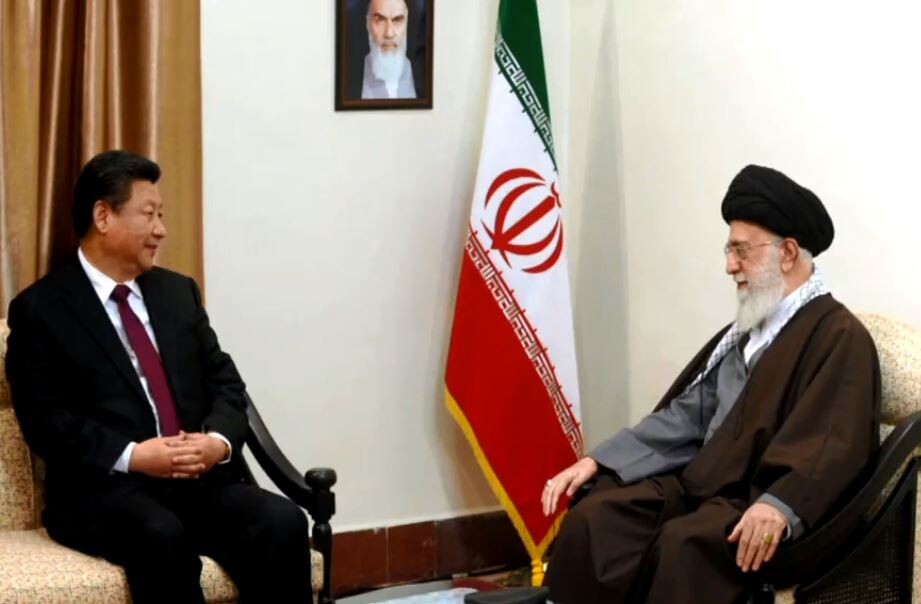

Chinese President Xi Jinping meeting with Iranian Supreme Leader Ayatollah Ali Khamenei last year
(Photo: Screenshot)
The upcoming presidential elections, set to take place in June, could persuade the supreme leader to delay the polls so as not to strengthen the country's more pragmatic camp on Election Day.
While all of these is going on, the maritime tensions between Israel and Iran continue to boil.
Last week, Tehran confirmed that a ship used by its Revolutionary Guard Corps was hit by mines in the Red Sea.
It is unclear whether this action attributed to Israel is linked to the Vienna talks, but the U.S. does believe there is a connection - an assessment supported by the recent attack on the Natanz nuclear facility that was blamed on Israel.
Leaks to the press regarding the attack aside, American officials also said that the timing of the strike to the start of talks in Vienna is no coincidence.
5 View gallery
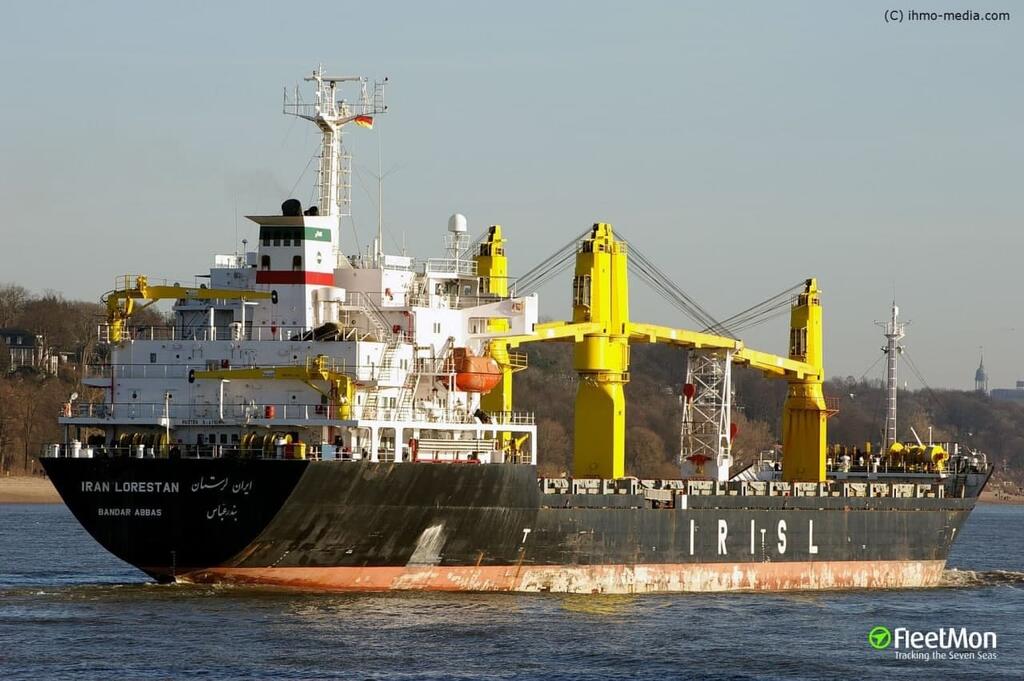

The MV Saviz, an Iranian ship operated by the Revolutionary Guard Corps, which was struck in the Red Sea
(Photo: FleetMon)
Israel's efforts to influence the Biden administration's position on Iran were doomed to fail from the start, when Washington realized that the only way to stop the Iranian threat is through the nuclear deal.
Even if Israel still had any chance of having any input with the U.S., the recent actions attributed to it risk that as well.
The only thing helping Israel right now is Khamenei's refusal and efforts to stop the talks.
Dr. Raz Zimmt is an expert on Iran and research fellow at the Institute for National Security Studies at Tel Aviv University


